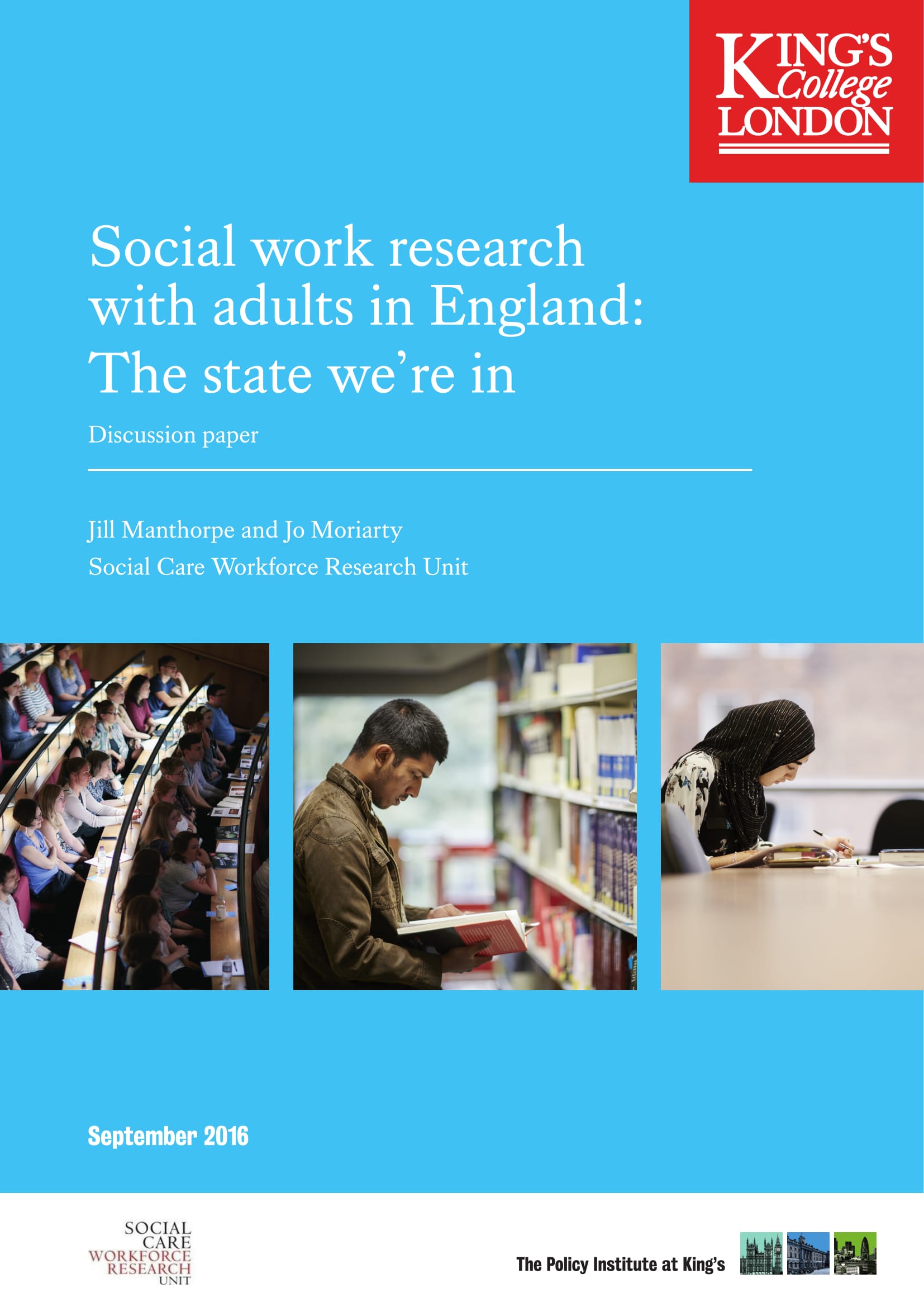 The adult social work sector in England needs to urgently identify its key research priorities, in an inclusive and rigorous way, if it is to generate the ideas and evidence needed to ensure that people receive the best possible support, according to researchers at the Policy Institute, King’s College London.
The adult social work sector in England needs to urgently identify its key research priorities, in an inclusive and rigorous way, if it is to generate the ideas and evidence needed to ensure that people receive the best possible support, according to researchers at the Policy Institute, King’s College London.
In a discussion paper on the state of social work research with adults in England, the researchers stress that the profession needs to be underpinned by research if it is to survive and to flourish. Among their recommendations are the establishment of a network that provides learning and mentor support for early career researchers, practitioner researchers, and managers interested in adult social work research, something that currently exists for researchers working on subjects such as ageing or in health services research.
The James Lind Alliance, a non-profit initiative that brings together end users, carers and practitioners to identify the most pressing unanswered research questions about the effects of medical and other treatments, was praised for its approach. It is singled out as providing the most potentially useful approach that could help reach agreement around the priorities for adult social work research.
Commenting on the paper’s findings and recommendations, the Chief Social Worker for Adults, Lyn Romeo, said:
‘I welcome this timely report and the action plan outlined in it. It is one of my key priorities to have a sharper focus on research and evidence-based practice so that social work continues to develop and improve in working with adults, those who care for them, and their communities. I am especially keen to take forward the key recommendation regarding the work of the James Lind Alliance in building consensus on the key research questions we want to ask in relation to social work with adults. What do we do, why do we do it, how do we do it, and what positive difference is our practice making to those we are privileged to serve, are vital considerations that must underpin practice development.’
The report also highlights the present challenges in tracking what research is being undertaken in the field, given the lack of a research register and the increasing number of studies and evaluations being conducted by independent and commercial research organisations, as well as universities. Identifying if and how social work researchers are involved in such projects would be useful for broadening understanding of social work effectiveness and capacity.
More, too, should be done with regard to funding, according to the report’s authors, Professor Jill Manthorpe and Jo Moriarty, who are based at the Social Care Workforce Research Unit, part of the Policy Institute at King’s. Information about funding opportunities for adult social work research should be collated and circulated more widely to improve awareness of them, and examples of successful funding applications could be analysed to identify critical success factors that would help other applicants, they conclude.
Professor Manthorpe said:
‘We hope that this report forms the basis of discussion about research priorities in adult social work. This needs to be an inclusive debate. We are delighted that our ideas chime with the thinking of the Chief Social Worker and look forward to taking them forward.’
Jo Moriarty said:
‘As our review on effectiveness published earlier this year showed, debates about social work evidence are longstanding and have been at times contentious. When resources are stretched, it is even more important that we have vigorous debates about priorities for social work research and how to achieve them.’
The full report, ‘Social work research with adults in England: The state we’re in’, can be read here.